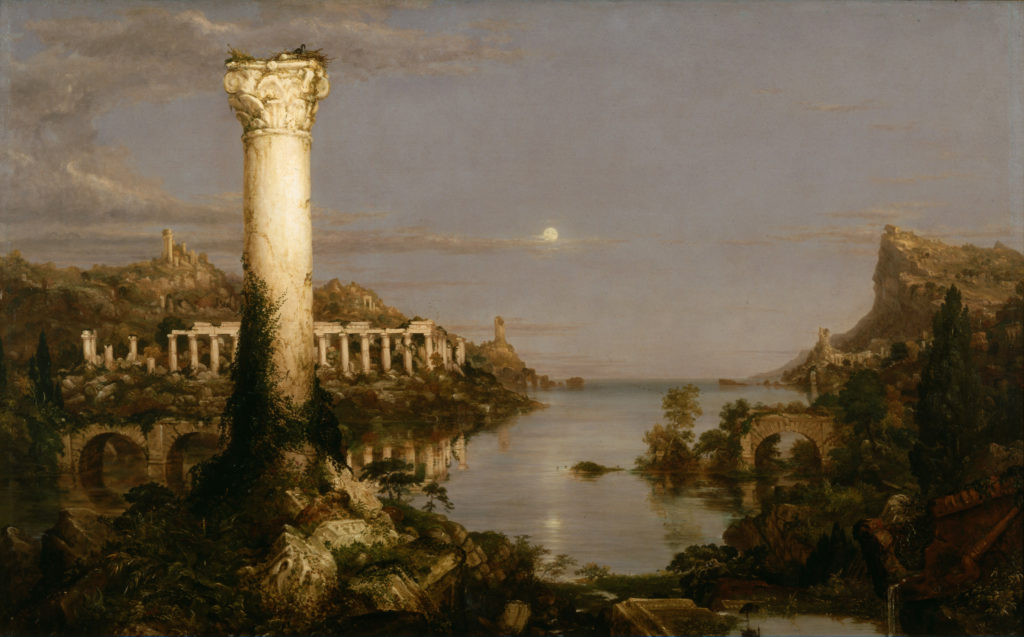This month the Seminary of the Southwest faculty has been reading William Cavanaugh’s excellent little book Being Consumed: Economics and Christian Desire. Micah Jackson had assigned this book to the Junior class for their colloquy and the faculty have been engaged in a parallel reading of it, culminating in a colloquy of our own about the book.
The key argument of Cavanaugh’s book, written from a Roman Catholic perspective, is that contemporary culture has become captive to the god of the free market. We are encouraged to consume the labor and product of others and to have our own labor and products consumed, often in an unreflective fashion. Cavanaugh persuasively argues that the free market as it currently operates is largely predicated on exploitation of others and that is corrosive to the common good. And yet, the framework of capitalism and the free market appears so pervasive as to be inescapable. So what is a Christian to do?
Cavanaugh introduces the thought of Augustine of Hippo on the nature of the human will as a beginning point to critique the current system and provide an opening for alternative Christian approaches. In essence, he uses Augustine to argue that we are so captive to unreflective desire in all facets of our life. Because of this, our economic system with its reliance on the “invisible hand” of the market, absent any emphasis on the cultivation of Christian virtues, is inevitably exploitative. Cavanaugh argues a necessary corrective would begin with an economic system that is based on the greater good of human flourishing and that contains a sober accounting of the human tendency towards the exploitation. Developing an Augustinian political theology, Cavanaugh takes the reader through ways of moving past the current economic system. His book does not provide easy answers, but it is helpfully clarifying and offers hope.

Reading this book made me think that perhaps Augustine of Hippo is the theologian we need for our times. It is not economic systems alone that have been subject to critique recently. The 21st century has begun as an era of epochal shifts and realignments. Old orders seem to be passing away and what is replacing them alternates as frightening or regressive. Many Americans wonder if even the Constitutional foundations of our country and the stability of Western liberal democracy are at threat. The certitude that history naturally progresses for the better can no longer be assumed.
Augustine himself lived and wrote in an era of similar shifts and the passing from one order to another. He wrote his magnum opus City of God in response to the Vandal’s sack of Rome. If Rome can fall, what can endure? Augustine’s response was one of deep pragmatism about human nature – we cannot necessarily assume the good of others in their actions. Yet, we can affirm that in the life of the Church, the grace of Christ can guide us towards right action that can be first exercised in the Body of Christ and perhaps also in the wider society. What Augustine offered was a sober eschatological hope. Our hope does not lie first in social institutions or the goodness of our leaders but first in Christ, who will in time redeem all things. Secular history may not always progress towards the good, but the Kingdom of God does. Such a view does not mean a retreat from addressing the ills of the world. If you read Augustine in his letters and homilies, you see a pastor passionately engaged in making the world of his congregants a better place. And yet, the focus remains on trusting the work of Christ above all else.
Augustine is a person that many progressive Christians think they are not supposed to like. His recent poor showing in Lent Madness illustrates this. I think much of this has to do with the fact his sexual ethic is different from our own and that we do not want to be as pessimistic about people’s commitment to doing good towards others, These are biases that I have found ebb as one engages with Augustine on his own terms. Read his homilies and you will find an Augustine different from what you were told about him. Read Augustine and you will find a pastor passionately committed to guiding his people through tumultuous and uncertain times. Read Augustine and you will discover perhaps the theologian we need most in this changing world of ours.
How might Augustine speak into our current moment?
Is there a figure from the early history of the church who inspires you?
Are the political, economic, and social conditions of Augustine really that different from our own?
Dan Joslyn-Siemiatkoski is the Duncalf-Villavaso Associate Professor of Church History at Seminary of the Southwest. Passionate about sharing the story of Christianity with his students, he is also active in Jewish-Christian relations.

